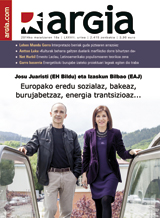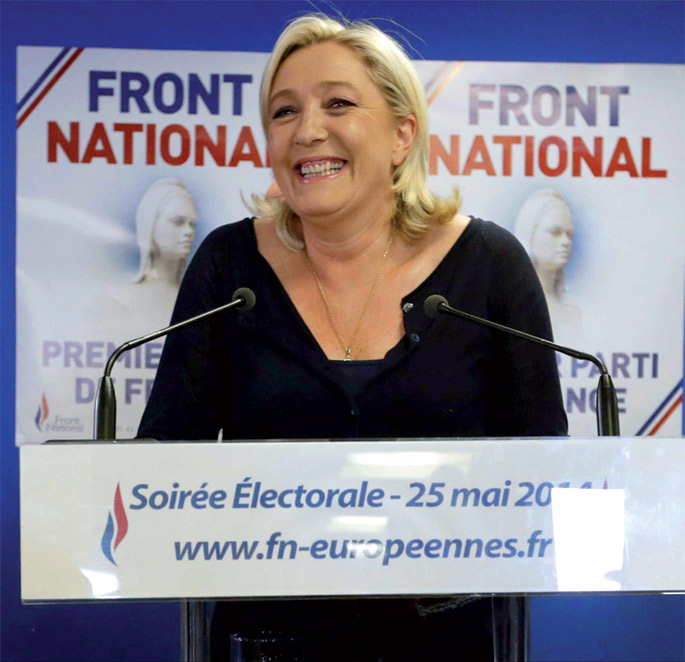And yet ... better be
The forthcoming EU elections will show how citizens value the EU’s response to the crisis. The first predictions are not good: In the 2009 elections, the consequences of which were not yet dormant in the EU, the turnout was 43%, the lowest of the first votes in 1979. It is a curious paradox that the greater the competence of the European Parliament and the more seats there are, the less the citizens' participation in the elections. And that has to do with their development and their historical context.
The germ of the European Union was constituted as a barrier to protecting the states of war. After the World War, and much better for it than creating a large economic market. A broad area of economic exchange for times when the economy was experiencing dramatic growth. When the social spirit remained weak in their pacts, the united European market became more social, not least because the first three decades after the war the most social model of Europe was built. In the first elections of those nine states (1979), 70 per cent of the population voted. Since then, the turnout has been dropping year after year in the next six elections, and the leaders fear that this is not to be ridiculous: Can it fall below 40 percent? Where is legitimacy then?
Today, however, can we talk about such a clear European Union? The EU of the single currency, the fruit of the Maastricht Treaty, opened up the imagination of cohesion, but the 2008 crisis soon revealed the lie of the euro’s unity. The group led by Germany – Austria, Denmark, Finland… – and economic inequality between almost all countries has been growing. Greece, Ireland, Portugal, Spain and Italy have been the countries where this phenomenon has been best seen. When greater protection and need for cohesion were required, the stronger states and the major institutions of the Union have further widened the gap. The EU’s rescue plans and austerity policies have placed the majority of states and millions of citizens on the verge of the abyss. The truth is that millions of citizens fall into the abyss in which, according to many leaders, we are emerging from the crisis.
Several shadows prior to the Second World War have appeared in Europe in the last five years: 26 million unemployed, the financial markets dancing and without being able to avoid the echoes of the crisis of 1929, the increasingly violent differences between those on the bottom and those on the top, the far right ever stronger… One of the great differences is the situation on the left: With the thrust of the winds of the Soviet Union, at that time left-wing movements pushed hard to balance social relations. Despite the fact that there are encouraging practices, the present Left is powerless and, therefore, the imbalance in social relations in favour of the richest is becoming increasingly apparent. The equation seems to be clear: The more social the European spirit is, the more the citizens of the European Union are identified with the Union.
Does this Europe of STATES and markets, therefore, as it progresses, have an attractive offer for peoples and citizens? In this type of construction that is becoming less and less likely and we cannot look optimistically at the near future. When austerity policies can be relaxed a little bit, we have in front of us the TAFTA agreement, the treaty that the United States has. United States and the EU has called the Atlantic Free Market Area. Competitiveness will be even stronger – also in labour markets and rewards – control of production, with its consequences, growth and competition will prevail over the environment, control of the development of the Pact is outside the hands of governments and, in general, the Anglo-Saxon development model will be stronger, with an increasing level of power in the financial world.
And yet, small peoples who depend on states are interested in being in the EU’s space. Especially those in states with a weaker democratic approach. The lack of interest in this Europe is understandable, but we small people can take advantage of this situation. One, because in these losses of state sovereignty there can be loopholes to strengthen the identity of the peoples; two, because the European Parliament can become an excellent speaker; and three, because it is the most significant permanent space that the defenders of Europe have today for the solidarity of the peoples and the citizens, an essential space to build the complicity necessary to build a different Europe.
Most Moved Holder: The PP has won the elections, especially because it has eaten Citizens in its entirety, and the PSOE remains roughly equal, keeping three out of ten total voters. Therefore, the PSOE has maintained the battle and a half badly seen what has happened in Europe,... [+]
Europarako Liberal eta Demokraten Aliantzak (ALDE) UPyD alderdia onartu du, talde berean dauden EAJ eta CDCren kontrako botoekin. Trukean, autogobernuari buruzko azpitaldea sortzea onartu du ALDEk.
Europako hauteskundeen ostean Syriza, Greziako ezkerreko koalizioa, herrialdeko lehen indar politikoa bihurtu da. Kostas Isychosek, alderdiaren kanpo politikaren arduradunak, “politika alternatiboentzako itxaropen boto” gisa deskribatu ditu emaitzak, Marta... [+]
Eduardo Muriel kazetariak Podemosek Europako hauteskundeetan izan duen arrakasta aztertu du La Marea hedabidean.
Alderdi ultraeskuindar eta populistak indar handiz sartu dira euroganberan.Frantzian Fronte Nazionalak panorama politikoa astindu du, eta Espainian bipartidismoak galera itzela izan du.
Ezkerrak egin du gora Erkideagoan eta ezkerrak egin du gora Nafarroan. Espainiako Estatuan ere ezkerrak gora egin du (IU). Eta Katalunian berriz, Esquerrak irabazi du. Kataluniak Esquerrari eskerrak Europako bidean Estatu izateko bidean beste urrats bat gehiago eman du.
Hauteskunde europarrek emaitza esanguratsuak utzi dituzte Frantzian. Iritzi-azterketek iragartzen zuten bezala, eskuin-muturreko Frente Nazionala (FN) lehen tokian iritsi da bozen %25arekin. Horri esker, 23-25 eserlekuko eskuratu ditu, europar legebiltzarrean indarrarekin... [+]
“Igandeko emaitzak ezin dira balizko foru hauteskundeetara ekarri”, gaztigatu zigun Yolanda Barcinak duela hiru egun, maiatzaren 23an. Gauza bera erran du Sergio Sayas UPNko komunikazio idazkariak: emaitzak ez dira ekartzekoak, “Nafarroako alderdi nagusia... [+]
“Oraingoan, ezberdina da” zioen, fede baino borondate gehiagorekin agian, Europako Parlamentuaren web orri ofizialak aurtengo hauteskundeen aurkezpenean. Lisboako Itunaren ebazpenak aintzakotzat hartuz egindako lehendabiziko bozketak zirela azpimarratzera zetorren... [+]
Horrela deitzen du Luis Moreno ikertzaileak lehengo urtean plazaratutako bere liburua. Eta horixe da niri hauteskunde gauaren ostean geratu zaidan sentsazioa.
Atzoko hauteskundeek utzitako titular nagusia Europa mailan alderdi euroeszeptikoek izandako igoera da ezbairik gabe. Ultraeskuinari dagokionean, arreta gehien bereganatu duen kasua frantziar estatuko Front Nationalen kasua izan da. Marine Le Penen alderdi ultraeskuindarrak... [+]
Ordezkari bana bidaliko dute Bruselara EAJk eta EH Bilduk datozen bost urteetarako. Euskal Herrian EAJk atera du boto gehien, zazpi lurraldeetan aurkeztuta: 220.885. EH Bildu Hegoaldean bakarrik aurkeztu da, eta bertan lehen indarra izan da. EAEn EAJk irabazi du, Nafarroan PPk... [+]
Info Zazpik idatzitako txio batean zioen Antonio Alvarez Solis kazetariak: “Estaturik gabeko nazioentzat Europako munstroaren aurrean beharrezkoa da ahotsa izatea”. Ez dut ukatuko garrantzitsua ez denik, baina hortik zorionak esateraino…

















